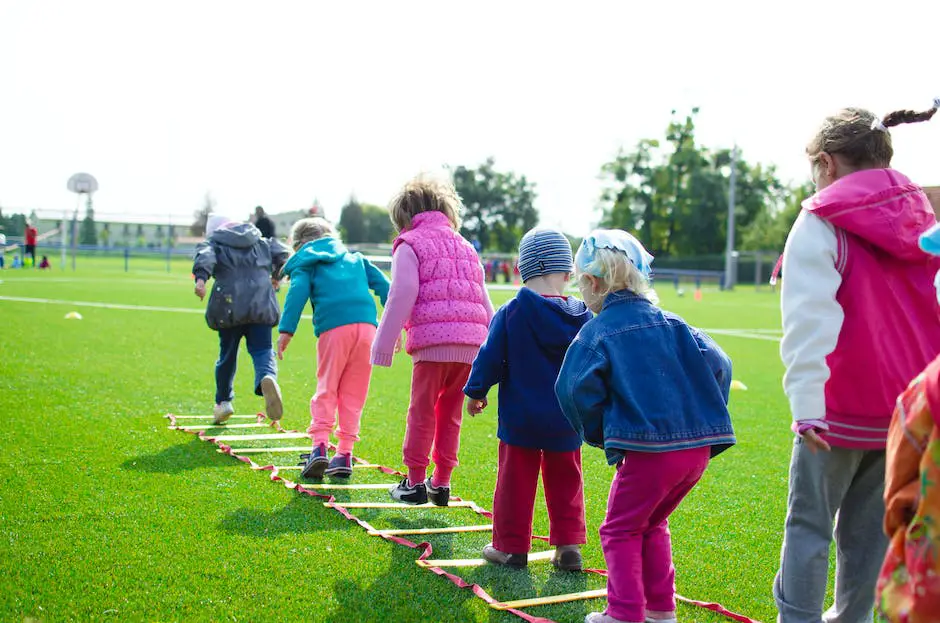It’s a universally accepted truth that our children are the ambassadors of our future — the torchbearers of hope, innovation, and progression in the world.
Embedded in their young hearts and minds is an unlimited potential for greatness, but the challenge often lies in harnessing this potential effectively. Unlocking this greatness begins with understanding, sparking, and maintaining their motivation levels, a factor largely influenced by biological and psychological aspects in addition to their environment.
By understanding and studying motivation in children, parents, and educators can harness the appropriate techniques and strategies to foster a lifelong passion for learning in kids.
Understanding Childhood Motivation
Unraveling the Mysteries: Factors That Influence Motivation in Kids
As parents, we often find ourselves playing detective, deciphering the reasons behind our child’s behavior and attitudes. One of the most intriguing enigmas is the question of motivation. What drives our little ones towards a task or a goal? Understanding children’s motivation can be greatly beneficial in helping them develop healthy habits, a robust work ethic, and a resilient attitude. Here’s what we should know.
The first key element that determines a child’s motivation is undoubtedly the environment. The atmosphere at home, the habits we cultivate as a family, and the interactions we have with our children all play a significant role in their motivation levels. A positive, supportive, and encouraging environment helps foster intrinsic motivation— the desire to do things for their own sake rather than external rewards. Parents can create and maintain such an environment through patient communication, praise for effort rather than just results, and encouragement to pursue personal interests.
Secondly, motivation is also significantly influenced by societal expectations and cultural backgrounds. What’s valued and rewarded in the family circle, school, and society can become a strong driving force for children. For instance, a community that values education will likely inspire children to strive academically. However, it’s essential for parents to remember that societal pressure can sometimes negatively affect motivation, leading to burnout or fear of failure.
The age and developmental stage of children can also impact their motivation. Young children are naturally curious about the world around them, and when their curiosity is nurtured, it forms a solid foundation for lifelong learning. As our kids grow older, their interests expand, and it’s crucial for parents to be supportive and provide the right amount of challenge to maintain their keen interest.
Another significant factor is personality. Every child is unique, and so are their motivating factors. Some children are self-driven, thriving on personal achievements, while others might seek social recognition or rewards. Understanding your child’s personality can be the key to unlocking their potential and helping them stay motivated.
-

Bold Male Pride – Baseball Trucker Cap Celebrating Masculinity
£18.00 Select options This product has multiple variants. The options may be chosen on the product page -

Dad Bod Appreciation Gift Mug
£14.00 Add to cart -

Dad Bod, Bad Jokes Structured Baseball Cap
£22.00 Select options This product has multiple variants. The options may be chosen on the product page
A child’s emotional well-being is intrinsically linked to their motivation. Children who cope well with their emotions tend to be more motivated. If a child is experiencing emotional distress, their ability to engage and find enjoyment in tasks can diminish. As parents, it’s crucial to develop our children’s emotional resilience from an early age, promote self-care, and provide support when they need it most.
Remember, motivation in children isn’t a one-size-fits-all concept. It evolves as our children grow, and it’s influenced by myriad factors. But with love, patience, and consistent support, we can guide our children in discovering what drives them to reach their full potential and, most importantly, find joy in the journey.

Strategies to Foster Motivation
Cultivating Motivation in Children: Insights and Effective Techniques for Parents
As architects of our home environments, we shoulder a pivotal role in steering the motivational compass of our kids. Having already ventured into how our environment and understanding of individual differences shape this intrinsic drive, let’s further explore the vital techniques parents can deploy to nourish their child’s motivation.
An essential element in this pursuit is fostering a growth mindset in our children. Reinforcing the idea that skills can be honed with practice and effort, rather than being static or innate, engrains the perspective that hard work results in progress. This, in turn, can lead to increased motivation to tackle challenges head-on and work through frustrations. Present setbacks as opportunities for growth and emphasize the journey of learning rather than the destination, outlining that mistakes aren’t reflective of limitations but stepping stones towards success.
In addition, setting achievable and meaningful goals with children can have a powerful impact on their motivation. Short-term and longer-term goals foster a sense of purpose, propelling them toward meaningful engagement in tasks. It’s crucial to ensure these goals align with your child’s interests or values. Achieving a goal that they have helped to set and which aligns with their passion increases their motivation substantially.
Equally meaningful is the application of positive reinforcement. Recognizing effort over the outcome is fundamental. Praise the effort that leads to achievement, even if the end goal isn’t met. It’s all about praising the “sweat,” not just the “win.”
Practical and purposeful tasks also offer a chance to bolster motivation. Introducing chores, for instance, can help children understand the value of contribution and the satisfaction gained from completing tasks. Strike a balance between setting tasks that are challenging yet manageable to keep them engaged without being overwhelmed.
Moreover, cultivating intrinsic motivation – the desire to do things because they matter, are interesting, or part of something important – is key. Help children discover their interests, passions, and talents, which will naturally lead to greater enthusiasm and engagement.
Lastly, model motivated behavior. Children are great observers and often mirror the attitudes and behaviors of those around them. When we show determination, perseverance, and a strong work ethic in the face of challenges, we provide them with a robust example to emulate.
Cultivating motivation in children is a long and rewarding journey, not a destination. Embrace challenges, encourage resilience, inspire through our actions, and, most importantly, be patient. These nuggets of wisdom, thoroughly practiced and applied over time, go a long way in cultivating and maintaining motivation in children. It’s about nourishing that spark within them and helping it grow into a blazing, sustainable fire of inspiration and determination.

Dealing with a Lack of Motivation
Guiding Parents: How to Respond When Your Child Lacks Motivation
Feeling unmotivated is natural in all aspects of life. Even as adults, there are moments where we’re sapped of inspiration. For children, motivation can ebb and flow, especially with the constant challenges and new experiences they face daily. As parents and caregivers, it’s our responsibility— and yes, our delight— to guide and support our children, helping them to find that spark again.
One key strategy parents often overlook is giving their children the space and freedom to explore their own interests. This facilitates an organic development of passion and curiosity, integral elements for sustained motivation. Encouraging children to follow their own innate interests can increase engagement and create a foundation for lifelong learning.
It’s also essential to help our little ones see the value in the process, not just the end result. In a world so focused on outcomes, it’s essential to stress the importance of effort, perseverance, and the satisfaction of a task done to the best of their abilities. This shift in focus can alleviate pressure, enhancing their drive to try, learn, and ultimately succeed.
Another way to boost motivation is by making learning and growth fun experiences. Incorporate games, puzzles, and interactive activities to invigorate the learning process. This technique not only makes mundane tasks enjoyable but also makes learning a captivating adventure that piques their interest and encourages active participation.
Relationships matter. Building healthy and positive relationships with teachers, mentors, and peers can also influence children’s motivation levels. A teacher’s meaningful praise or a friend’s shared excitement for a project can do wonders to restore a child’s will to work and learn. The idea here is to develop a supportive network that recognizes and appreciates your child’s efforts and progress.
Fear of failure is often a significant barrier to motivation. It’s crucial to communicate that everyone fails, even adults, and failure is merely a stepping stone towards success. Help your child to view failure positively as an opportunity to learn and grow. Remind them that it’s all right to make mistakes, and each error brings them a step closer to getting it right.
Lastly, remember that patience is key. Restoring motivation doesn’t happen overnight. It can be a journey filled with patience, empathy, and understanding. Yet, the reward—seeing your child’s passion and drive reignited—is surely worth our every effort.
In this exciting journey of nurturing motivation, remember that every tiny win is a step forward. Be your child’s biggest cheerleader, celebrating their efforts, progression, and resilience. In doing so, you’re not only boosting their motivation but also paving the way to a future where they understand the value of persevering, whatever the odds. After all, aren’t these the life skills we wish to ingrain in our little ones for their lifelong journey?

History attests to the critical role that motivation plays in propelling personal and societal advancements. In children, fostering motivation is not merely about getting them to complete their chores or homework, but rather shaping their long-term relationship with learning, exploration, and growth. As they navigate through the exciting journey of childhood, kids will invariably face periods of dwindled motivation. Supporting them in such phases of life requires an abundance of patience, understanding, and care, all while employing a myriad of strategies that reinforce their innate drive. By conscientiously and mindfully facilitating kids’ motivation and interest, we are in essence sowing the seeds for a more enlightened, creative, and industrious generation — thereby cementing a promising future for society as a whole.







